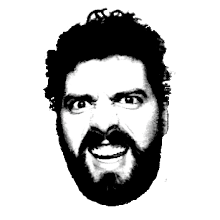I found a post saved in my drafts from about a year ago that I never finished! I will attempt to do so now...
 |
| Immanuel Kant, 1724-1804 |
We were talking about one of the philosophers Addison has studied, Kant, who laid claim to synthetic epistemology. I had to ask Addison what epistemology was, so please, know that there's no judging going on from this end if you're having trouble even pronouncing it, let alone knowing what it is; here's my dictionary widget's explanation:
epistemology |iˌpistəˈmäləjē| noun Philosophy the theory of knowledge, esp. with regard to its methods, validity, and scope. Epistemology is the investigation of what distinguishes justified belief from opinion.'The theory of knowledge.' To understand what it means to know something. For instance, when you walk through a door, what do you know about that experience? In the physical realm, it's a large, flat piece of wood that's been carved and assembled by a man or machine, affixed with metal hinges and knobs and a lock, maybe some glass, and it is inserted into a cutout at the front, back, or side of your house or any building. In the practical sense, you use it every time you want to go into or out of a place and, when locked, it prevents (or at least hinders) unwanted persons from entering the premises.
What you actually 'know' about using a door is more related to the second description in the above paragraph: what it's used for. For what is wood? What is metal? Glass? Wood comes from trees, yes, but what's a tree? Metal and glass come from the earth; what is the earth, really? If we use our five senses (sight, hearing, touch, smell, taste) to experience the world, we entirely rely upon them. They communicate things to us like, 'That telephone poll is 10 feet away, walk around it,' or, 'Hold your hands to your ears as the firetruck passes to avoid hearing damage,' things that are necessary knowledge for survival.
The remarkable and most memorable part of our conversation had to do with something Kant suggested: the unreliability of our senses Interpreting and translating information. What are the true objects of these interpretations? How do we know an apple tree is an apple tree? It could really be some weird monster that knocks us down when we run at it too fast but gives us something good to eat when we reach our hands up to it. The point is this: since we utterly depend upon our senses to give us practical information about the world, we can't discover what is true reality via our senses. We know enough to survive, but we don't know what really may be before our very eyes.
 |
| Neo waking to reality. |
It made me feel very grateful that our good God is the One forming ultimate reality. Whatever real reality really is (haha) that He's created, however difficult it may be to swallow, there's a thrill in knowing that 'for now we see through a glass, darkly; but then face to face' (1 Corinthians 13:12a).













